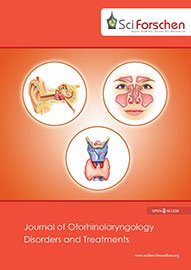
Assistant Professor
-
Department of Communication Sciences and Disorders
Elmhurst College, Elmhurst, Prospect Ave, USA
Phone: 630-617-3688
Email: Laura.froeschke@elmhurst.edu
Education
| Degree | Year | Field of Study | Institution and Location |
| Ph.D. | 2015 | Western Michigan University | |
| M.A. | 1994 | Speech – Language Pathology | Western Michigan University |
| B.A. | 1992 | Audiology and Speech Sciences | Michigan State University |
Biography
Dr. Froeschke is an assistant professor in the Department of Communication Sciences and Disorders at Elmhurst College, in Elmhurst, IL. Her clinical practice experience spans over 20 years with specialization in neurogenic communication disorders and voice/swallowing. She teaches graduate courses in fluency, voice, adult neurogenic language disorders, and intercultural service delivery. Prior to joining the faculty at Elmhurst College, she served as a visiting faculty member at Northwestern University, teaching graduate courses in fluency, swallowing and counseling, as well as supporting graduate voice lab instruction. She completed her Ph.D. in Interdisciplinary Health Sciences from Western Michigan University, during which time she served as editorial coordinator and reviewer for Topics in Language Disorders. She was named as a Pre-doctoral Fellow of the American Heart Association for her research in Latino stroke symptom recognition. She has published research in Stroke and presented at conferences of the American Heart Association and the American Speech Language Hearing Association. Her early research focused on linguistic variables within stroke symptom recognition and response. Currently, her research is focused on exploring linguistic variables in clinical manifestations of spasmodic dysphonia. She has presented for the National Spasmodic Dysphonia Association Midwest Conference and has provided interdisciplinary workshops on care of the professional voice in collaboration with Chicago area opera professionals. In addition to her teaching and research responsibilities, she continues to engage in clinical practice in voice and neurogenic disorders. Her research, clinical and educational activities continue to place a strong emphasis on interdisciplinary scholarly processes. In addition to her research and educational activities, she provides volunteer support and ongoing collaboration for the Chicago Aphasia Network (CAN).
Research Interest
- Linguistic analysis of lexical and syntax features associated with clinical manifestations in Adductor-type Spasmodic Dysphonia (ADSD)
- Emotional valence of lexical items associated with moments of voice break in speakers with ADSD
- Identity reconstruction in women with chronic conditions - implications for those with spasmodic dysphonia
- Establishing a phenomenology of ADSD through narrative medicine using mixed methods research strategies
Scientific Activities
Positions and Honors
| 2014 – 2015 | Pre-doctoral Fellowship Awardee: American Heart Association |
| 2011-2012 | Western Michigan University Intramural research grant, |
| 1998 | ACE Award Recipient |
Publications
- Accessibility of Current Stroke Education Brochures: Linguistic Analysis of Written Style and ReadabilityMeasures. L. Froeschke, N. Nelson, M. Lagerwey, E.H. Campbell, (2016). Stroke, 47, Supplement Impact Factor 5.723, 13th of 192 journals in Clinical Neurology
- Stroke Symptom Recognition Is Associated With Everyday Linguistic Style And Not With Acculturation In Hispanic Americans. L. Froeschke, N. Nelson, M. Lagerwey, E.H. Campbell, (2016). Stroke, 47, Supplement Impact Factor 5.723, 13th of 192 journals in Clinical Neurology
Research Presentations
- Oral Poster Presentation: American Heart Association International Stroke Conference, Los Angeles, CA (February, 2016) Accessibility of Current Stroke Education Brochures: Linguistic Analysis of Written Style and Readability Measures.
- Oral Poster Presentation: American Heart Association International Stroke Conference, Los Angeles, CA (February, 2016) Stroke Symptom Recognition Is Associated With Everyday Linguistic Style And Not With Acculturation In Hispanic Americans.
- Exploration of Linguistic and Extra-Linguistic Factors in Stroke Knowledge: Studies of Input, Output, and Outcome (2015). A Dissertation submitted to the Graduate College of Western Michigan University in partial fulfillment for the requirements of the Ph.D. in Interdisciplinary Health Sciences. Defended March 13, 2015.
- Stroke Symptom Recognition in Latino Americans and its Relationship to Language Use and Linguistic Register. Poster Presentation, American Speech Language Hearing Association Convention, November 2013.
- Stroke Symptom Knowledge in a Suburban-Dwelling Latino Population; Pilot Study of a New Spanish Version of the Stroke Action Test. Presented 07/12, Western Michigan University Graduate School Biennial Research Symposium.
- Mexican-American Immigrant Women in the Chicago Suburbs: Constructs of Health and Illness and Their Impact on Healthcare Utilization. Presented 05/11, Wheaton Graduate School Intercultural Studies Department
- Perception of Meningococcal Meningitis: Does Vaccination Mandate Make a Difference? Presented 05/11, Western Michigan University Graduate School.
- Oral vs. Laryngeal Based- Stuttering Classifications: Evidence from Vocal Perturbation Measurements Western Michigan University Graduate School, 1994.

